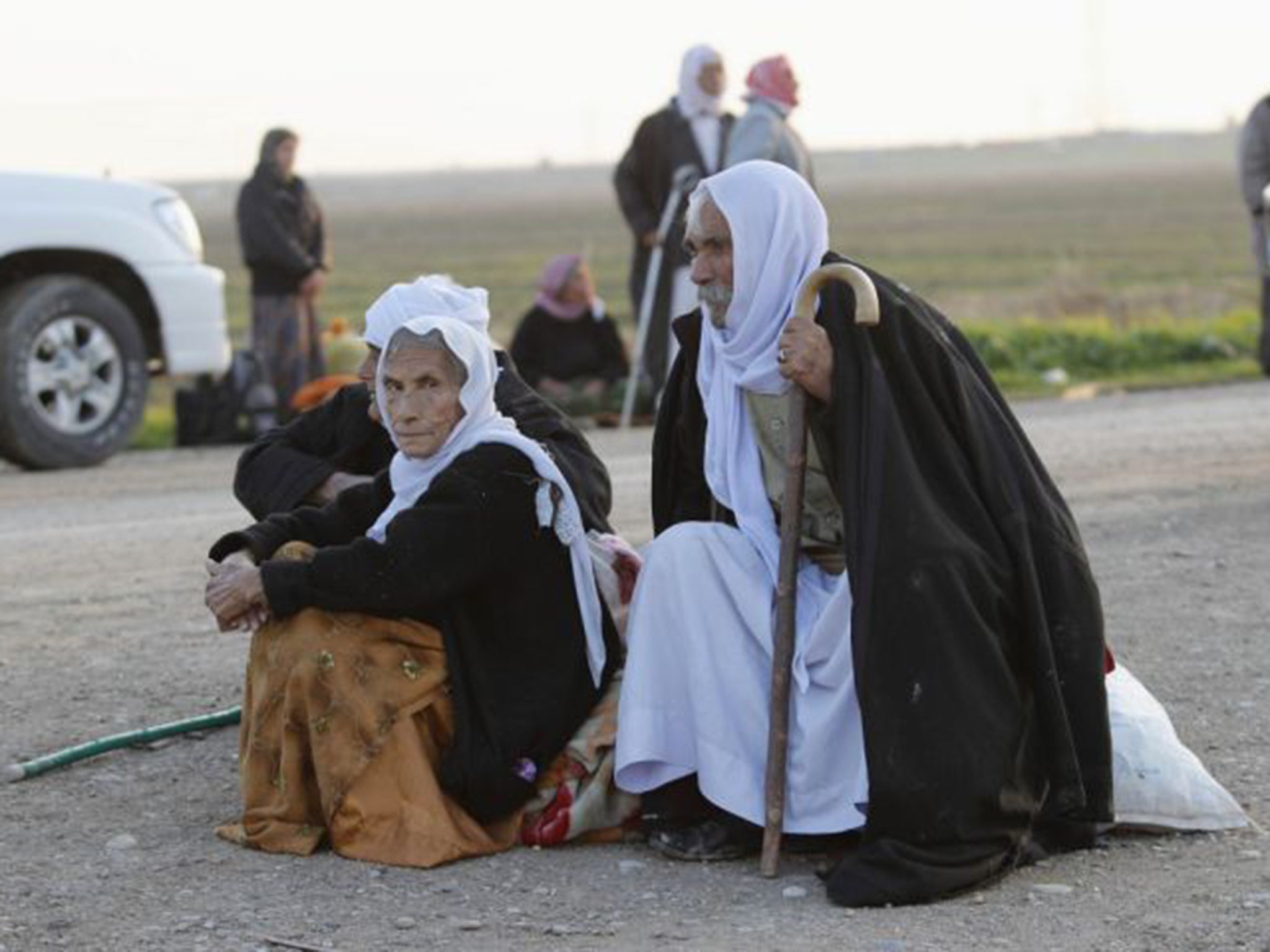Freed Yazidis tell of girls and women being raped and sold into sexual slavery by Isis fighters
Isis has released dozens of sick and elderly members of the Iraqi sect it brands ‘apostates’ but, as Patrick Cockburn reports, many of the healthy young women still being held are turning to suicide as their only way out

Your support helps us to tell the story
From reproductive rights to climate change to Big Tech, The Independent is on the ground when the story is developing. Whether it's investigating the financials of Elon Musk's pro-Trump PAC or producing our latest documentary, 'The A Word', which shines a light on the American women fighting for reproductive rights, we know how important it is to parse out the facts from the messaging.
At such a critical moment in US history, we need reporters on the ground. Your donation allows us to keep sending journalists to speak to both sides of the story.
The Independent is trusted by Americans across the entire political spectrum. And unlike many other quality news outlets, we choose not to lock Americans out of our reporting and analysis with paywalls. We believe quality journalism should be available to everyone, paid for by those who can afford it.
Your support makes all the difference.Many girls from the Yazidi community in Iraq are committing suicide after being raped and sold into sexual slavery by Isis fighters who captured them last August. And some 200 Yazidis, held prisoner for five months before being freed at the weekend because they were sick or old, report continuing mistreatment of those still captive.
“They are very bad people,” said Gawre Semo, 69, who reached the Kurdish-held town of Altun Kupri. “They took our children and they took our women.”
A surprise Isis offensive in August led 50,000 Yazidis to flee into territory held by the Kurdistan Regional Government (KRG). But an unknown number, amounting to many thousands, were massacred or detained while many women were raped or sold as slaves. Isis claims that such treatment of the Yazidis, whose ancient religion is drawn from Islam, Christianity and Zoroastrianism and who Isis call apostates, is permissible under Sharia law.
Some 300 women who have escaped from Isis-held territory have given accounts to Amnesty International about how they were raped and sold as slaves. They say many of the victims killed themselves. One girl, 20-year-old Luna, who later escaped, described how Jilan, 19, had committed suicide: “We were 21 girls in one room, two of them were very young, 10-12 years. One day we were given clothes that looked like dancing costumes and were told to bathe and wear these clothes. Jilan killed herself in the bathroom. She cut her wrists and hanged herself. She was very beautiful. I think she knew she was going to be taken away by a man and that is why she killed herself.”
Arwa, 16, was abducted from her village south of Mount Sinjar in August along with hundreds of relatives and neighbours. She described how she was moved around between Syria and Iraq until finally she was held in a house in Rambussi south of Sinjar with five other girls. She says: “They did to me what they did to many other girls. I was raped… The men were all Iraqis. They said that if we killed ourselves they would kill our relatives.”
Despite these threats, many girls do kill themselves, or try to do so. The Amnesty International report Escape from Hell: Torture and Sexual Slavery in Islamic State Captivity in Iraq describes how Wafa, 27, and her sister tried to kill themselves with scarves around their necks after being told they were to be sold as slaves. She said: “We tied scarves around our necks and pulled away from each other, until we fainted.” Wafa and her sister survived only because two other girls sleeping the same room woke up and stopped their attempted suicide.
“Hundreds of Yazidi women and girls have had their lives shattered by the horrors of sexual violence and sexual slavery in captivity,” says Donatella Rovera, an Amnesty crisis response adviser who spoke to 40 former captives. “Many of those held as sexual slaves are children – girls aged 14, 15 or even younger.” Captives are often forced to convert to Islam.
Isis launched a surprise attack on 3 August against KRG forces in Nineveh province around Mosul and Sinjar, where the Yazidi were heavily concentrated. The area has some of their holiest sites.
The KRG forces fled immediately, often without telling Yazidi villagers that they were leaving. The first that many Yazidis knew of the offensive was when Isis motorised columns arrived in their villages and it was too late to flee. A KRG counter-offensive in December has retaken part of Sinjar but few Yazidis have returned to their homes.
Today, General Shirko Fatih, the commander of Kurdish forces in Kirkuk, said almost all of the freed prisoners were in poor health and bore signs of abuse and neglect.
The militants transported the captives from Tal Afar, where they had been held for five months, and dropped them off at the Khazer Bridge, near the Kurdish regional capital of Irbil. “It probably became too expensive to feed them and care for them,” General Fatih said.
Join our commenting forum
Join thought-provoking conversations, follow other Independent readers and see their replies
Comments